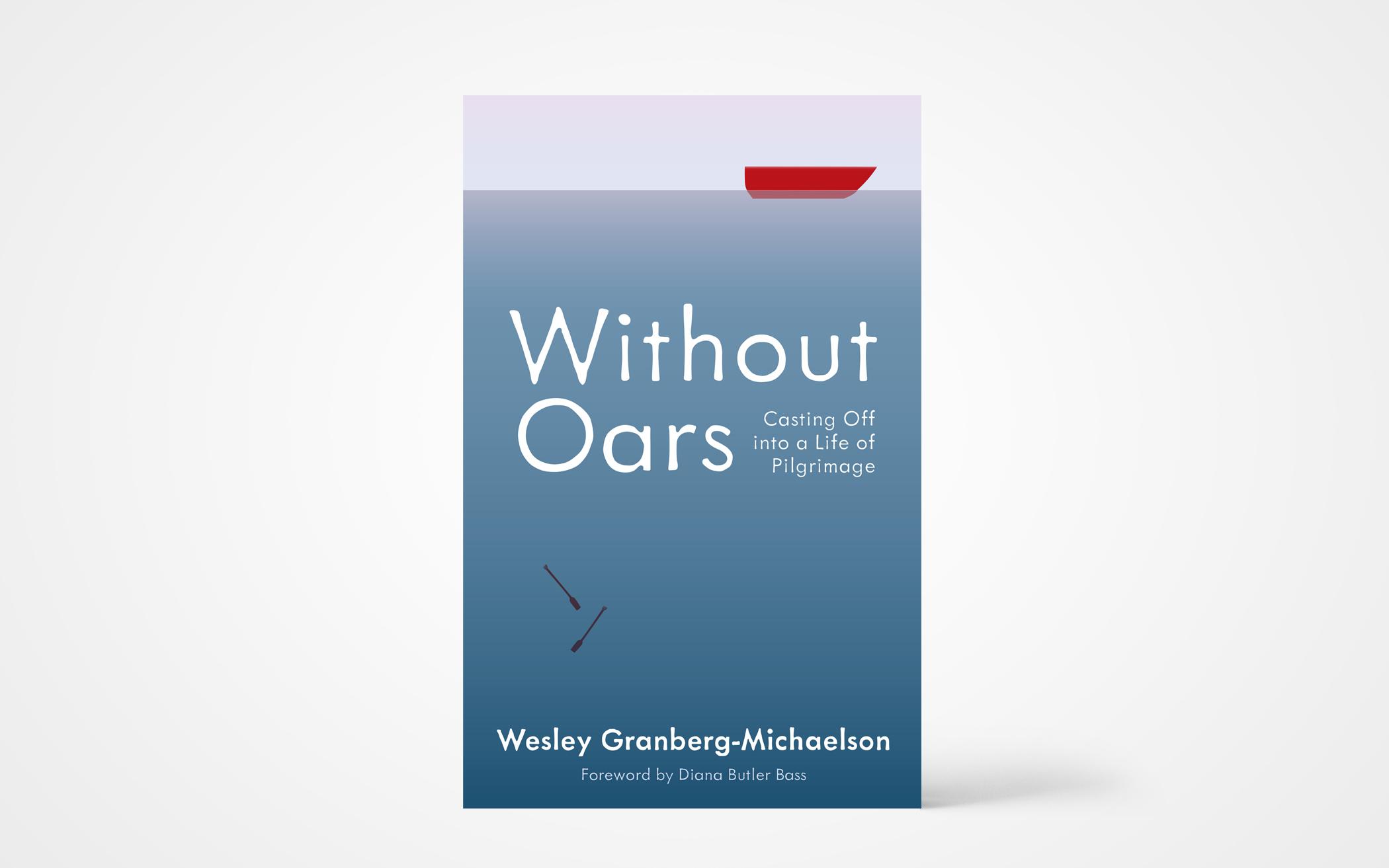“Pilgrimage: a journey from the known to the unknown … a search for something life-giving … the soul’s true home.”
In Without Oars, Wesley Granberg-Michaelson, the former general secretary of the Reformed Church in America, describes the religious life as a pilgrimage, an “embodied journey, not a cocoon of protected beliefs.” Using “peregrinatio” stories as illustrations (from peregrinatio pro amore Dei, which translates to “wandering for the love of God”), Granberg-Michaelson proposes that at some point in our lives, we must leave behind our “compelling mission plan,” or any such “grand strategy.” Eventually, we must trade false security and comfort for abandonment and embark into danger with “nothing and no one left to trust but God.” Like Irish pilgrims Dubslane, Macbeth, and Maelinmun, in the year 891, who set out into the North Atlantic in an oarless boat, Granberg-Michaelson invites readers to consider casting off on their journey without oars.
Casting off represents the first of three movements of life’s pilgrim journey—detachment. Casting off requires moving away from our superficial self—the one we “sell” to our friends and curate through witty tweets and staged selfies—and moving toward our real self and our thirst for real presence. Casting off means relinquishing screen time because “you can’t walk on unexpected pathways while looking at screens.” It means detaching from the habit of “seeing ourselves at the center of everything,” to move, step by step, toward the deeper reality of God’s presence “undergirding all that is.”
Detachment slowly opens us to the second movement, attention—paying attention with a “reflective, interior attentiveness,” a “commitment to be present.” Like a soldier at attention, the pilgrim acquires a readiness to “hear and respond.”
Slowly, attention opens us to the third movement—connection. We can connect to the core of our being, our true self; and then “apart from all that we do … beyond all that we suffer,” the core of our being can find connection to “the flowing stream of God’s love.”
Granberg-Michaelson imparts living wisdom as he traces different journeys in his life using the language of pilgrimage. He sketches his steps from a mystical experience in 1972 at a Trappist monastery in Virginia to the 480-mile Camino de Santiago in Galicia, Spain. Weaving the outward journey with the inward, he relinquishes the layers of his protective self in pursuit of his “real self.”
Along the way, Granberg-Michaelson offers the perspectives of others on pilgrimage: rebellious, embodied spirituality; extroverted mysticism; and the great liminal experience of the religious life. And in his last chapter, Granberg-Michaelson offers reflections on the final steps of our pilgrimage—death. We are “in the end … carried without oars over the Jordan.”
To readers, Granberg-Michaelson commends embodied faith above beliefs. Reflecting on the fruits of his pilgrimage and seeing creeds and confessions as mere containers for beliefs, he writes, “I’ve come to doubt my belief in beliefs … ‘Faith’ is different from belief. It’s an event. And faith is made by walking.” (Broadleaf Books)
About the Author
Dave Beach is an educator/counselor/author currently serving trauma survivors as the mental health director at the Johnson-Brower Foundation. He authored Following the Man of Sorrows: A Theology of Suffering for Spiritual Formation and co-authored The 7 Pillars of SheWillStay and The Essential Bible Companion to the Psalms. He and his wife, Cynthia, own a publishing company, soulseasonspublishing.com. Visit him on Facebook at David R. Beach in Lowell, MI.

